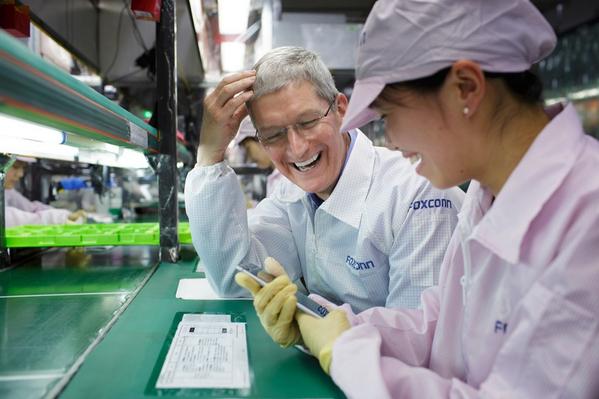A report published by Greenpeace depicts a tech industry that is much less green than one might believe. According to the association, Samsung, Apple and others continue to pollute widely, more or less directly.
Apple makes big promises in the name of ecology, Samsung continues to green its image… but what is it in reality? A report published by Greenpeace on November 21 reveals significant problems in the climate policy of these companies. According to the association, “the level of ambition of electronics manufacturers is still far from sufficient to ensure that the increase in the planet’s average annual temperature does not exceed 1.5°C“.
An electric bill as big as Chile
To affirm this, the Asian branch of the NGO took an interest in the supply chain of major electronic device manufacturers. We therefore find a critical assessment of the carbon footprint of factories belonging to Samsung, LG and Intel. Foxconn, BOE and Luxshare Precision, all involved in iPhone production for Apple, are also on the list.
“Emissions from five of the largest electronics makers, including Samsung Electronics, Foxconn and Intel, increased in 2022», Explains Greenpeace. In total, the 11 factories scrutinized by the NGO consumed more than 111,000 GWh of electricity, a little more than the overall consumption of a country like Chile. This is partly explained by an increase in the production rate.
While some suppliers have committed to achieving carbon neutrality by 2050 (notably Foxconn, LG and TSMC), Greenpeace still notes that none are on the right path to halving their greenhouse gas emissions. of greenhouses by 2030. Such a climate trajectory is nevertheless essential to respect the Cop21 agreements which provides for global warming not to exceed 1.5°.
Not so “green” products
Even the players most committed to the ecological transition rely largely on carbon offset programs whose ineffectiveness has been widely documented, notably by a Guardian investigation dating from early 2023. Note, however, that Foxconn is part of good students, by using “cleaner” methods to generate renewable energy. Unfortunately, in 2022, the ratio of renewable energy used in the company’s operations was less than 10% according to Greenpeace.
In the game of ratings on actions in favor of the climate and the decarbonization process, the Samsung semiconductor factory inherits a D+ due to “the absence of an emissions reduction objective by 2030 and its slowness in moving to 100% renewable energy“. Ditto for Foxconn, which “has made little progress in reducing emissions“. The well-known factory emitted, in 2022, more CO2 equivalents than a country like Iceland.
Behind the cool, trendy and environmentally friendly veneer that these companies present are hiding, as is often the case, supply chains that are still very dependent on fossil fuels and very slow to adopt more environmentally friendly production methods. . “Brands like Apple and Microsoft shouldn’t promote their products as “green” when their supply chains are still powered by coal and gas.», denounces Xueying Wu, the head of the report at Greenpeace.
Source : Greenpeace

5